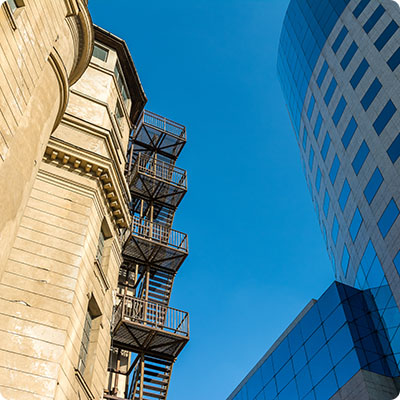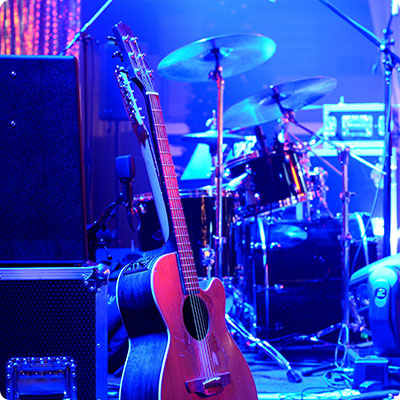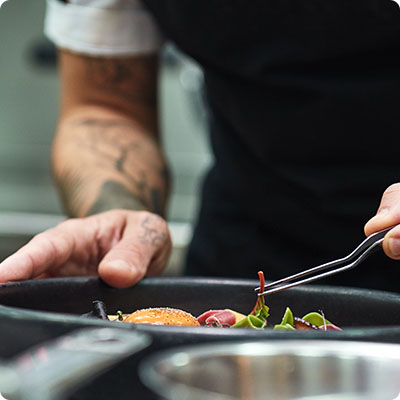What budget for activities and outings Russia?
Admission to most Russian museums is very cheap. In the provinces it is around 150 RUB, and from 250 RUB for Moscow and St. Petersburg and the most prestigious establishments. On the other hand, there are sometimes additional fees: 100 RUB here for the right to take photos, 200 RUB there to visit a temporary exhibition.
Senior citizens and children almost automatically benefit from discounts. For students it is a little more complicated: depending on the structure, the preferential rate can sometimes be reserved only for those enrolled in a Russian university. In any case, do not forget to bring all the necessary documents (passport, student card or ISIC card).
Remnants of the Soviet era, sportivnaya ploshchadka (literally: small sports square) dot the parks and green alleys of Russia. There you will find all the equipment for outdoor physical fitness. In some places whose size and shape allow it, one can even find health trails.
The cost of daily living is in absolute terms lower in Russia than in Western countries, and so is the cost of food at the supermarket. Except, of course, for very refined products, the import of which in times of sanctions is, to say the least, complicated. In any case, it is better to consume locally, and as everywhere, the best way to do so is to shop in the market! Beware, they generally close at 5pm and are not necessarily open every day. But you will find good fresh products, local specialties and, for those interested, the only really cheap clothes in the country (and often very kitsch!). Some, like Izmaïlovo's in Moscow, specialize in selling souvenirs. So don't hesitate to negotiate prices if you buy several items.
Canned food (when paid for) is cheaper in Russia than in Europe. This varies according to the time of arrival and the line-up. But the "face-control" will be all the more severe... Be careful also with the price of the consos, which in certain very trendy and popular boxes of the "new Russians" climbs very quickly. For those who would like to avoid this hassle, the best way to soak up the joyful local atmosphere in Russia is to look at the concerts. Russians are fond of music and excellent at it. One can choose to go and see a well-known band playing in a big hall (the ticket will be cheaper than in Paris), prefer a jazz club, a piano bar, a rock scene, or even the basements where young punk bands are flourishing!
What budget to eat Russia?
While the rouble signage can be misleading, prices in Moscow and St. Petersburg cafés and restaurants are now close to those in major French cities. So you have to be quite careful in your choice of establishment, because the quality is not always there. The best plan is the stolovayas (столовая), those Soviet canteens that resisted the change of regime and are still popular. They can be found everywhere, often under the name "Stolovaya No. 1". Without being unbelievable, the food is nutritious and above all, traditional: breaded chops po-Kievksi, gretchka, borsch, etc.. You can find all the classics of Russian popular cuisine at unbeatable prices in an authentic atmosphere.
The price of gourmet breaks and alcoholic drinks depends on the house, but overall it is much lower than on the European continent. Russia is experiencing a feverish epidemic of craft beers! Good beer bars have flourished in the city centres and the pint there is generally cheaper than in Western Europe, especially considering the quality (count 250 RUB on average). Cocktails are also very fashionable and can be very successful if the establishment is of good quality. They will be a little cheaper than in Paris but not very cheap either. In any case, it's better to put the price on it: Russia, even in its most remote provinces, is full of very, very talented mixologists.
What is the budget for accommodation Russia?
Budget. In larger cities, it is fairly easy to find very inexpensive youth hostels where you can book beds via the usual platforms (Booking, TripAdvisor). In Moscow, for example, it is possible to stay for RUB 300 per night. In fact, these hostels have somewhat replaced the Soviet-style obchejitic hostels for students and young workers. While students are still accommodated in the U-towns, for many young people from the regions and other former Soviet republics trying their luck in the big Russian cities, the youth hostel has replaced the hostel and has become the most economical way of accommodation: they settle there in the medium or long term. The bedding is inevitably of poor quality, but it is well received. For young tourists for whom comfort is not the first priority, it is really a very good way to immerse themselves in Russian daily life, make friends and practice the language. Indeed, in some establishments, there are sometimes almost no tourists at all!
In general, however, prices are still much lower than in Europe. For a dormitory bed in a better quality hostel, you can expect around 700 RUB (+/- 10 €), and from 2,000 RUB for a single hotel room.
Many small establishments, between the boutique-hotel and the guesthouse, offer very good value for money without being cheap. You will find accommodation in charming and well-kept hotels for a budget ranging from RUB 1,500 to RUB 3,000 per night. Of course, the quality of the services remains sometimes a little random: here a very good breakfast but bad bedding, there a successful decoration but noisy pipes.
For those who would prefer a slightly more aseptic comfort, there are still the big chains, which are present in all the major Russian cities (Radisson, Holiday Inn, Hilton, etc.). We spend a little more, but in return, no unpleasant surprises! On the other hand, the standardised locations sometimes lack charm.
The perfect compromise is the former large Soviet "Intourist" hotels, which were intended to accommodate foreign visitors exclusively. They can be found in all the major cities of Russia, occupying imposing buildings in the centre. The interior setting is generally beautiful, often still in its vintage juice and a little pompous, the staff are at the top of their game and the quality of service is equal to that of the big chains. To recognize them when you make your reservation, remember that often the beautiful old Soviet hotels are named after the city!
Recording. Although it is often more pleasant than a hotel, renting apartments via platforms such as Airbnb is not really practical for European travellers to Russia. The reason for this is, of course, the check-in. Indeed, once arrived on the territory of the Federation, foreigners have 7 working days to carry out the registratsiya, i.e. the notification to the authorities of your presence in a place. Usually, it is the hotel that takes care of this automatically as soon as you settle in, as they are entitled to do so via a dedicated channel. If you are staying with a private individual (whether a friend is hosting you or you are staying at a rental property), it is up to them to register you, by going to the migration office or the post office. The procedure requires you to queue long enough and so most rental companies choose not to offer it (which is technically illegal). So if you really don't want to stay in a hotel, you will have to find an apartment whose owner agrees to register you (sometimes for a small fee). In order to check in, you will have to provide your passport and migration card, which is a precious sesame that is issued to you upon arrival on Russian soil and should not be lost under any circumstances
Technically, registration is the responsibility of the host, so in the event of a breach it is up to the host to pay the fine. Technically, too, in practice, the police cannot require the foreigner to produce his or her registration during an inspection. In reality, these rules are applied only very randomly by the police and the administration. It is therefore much preferable to always make the registration properly and to always carry the stub of the form with you in order to be able to prove it
The important thing, however, is to check in at least once every 7 working days. So, if between two stays in establishments that practice registration, you wish to stay 3-4 days at a private home, in a place where you will not be registered, it is possible. If you are travelling with an e-visa, which has a maximum duration of 8 days, you are not obliged to register, as 8 days is equivalent to less than 7 working days (weekends are considered as non-working days)
Finally, be aware that some accommodating youth hostels (such as the famous Cuba Hostel in St. Petersburg), can register you for the entire duration of your visa, even if you only stay a few days. You can then wander with peace of mind to places where registration is not practiced!
Travel budget Russia and cost of living
Russia is a vast and diverse country, and standards of living are very different. Three types of cities can be distinguished: the two capitals of Moscow and St. Petersburg, regional capitals and tourist centres, and other cities in Russia. Moscow and St. Petersburg have the reputation of being expensive cities. In fact, accommodation is the most expensive. Transport is very cheap, restaurants a little cheaper than in France and museums reasonable. In the regional capitals, the price of accommodation is often driven up by business customers, but the cost of daily living is in line with local salaries: low.
A tight budget can manage for RUB 3,000 a day, which is RUB 1,300 for accommodation and breakfast always included, RUB 1,200 for lunch and dinner, the remaining RUB 500 for visits, transport and outings.
For an average budget, RUB 7 000 is needed: RUB 3 500 for a room in a medium-class hotel, RUB 2 500 for two meals and RUB 1 000 for visits and outings, and taxi.
Big budgets can go very high. Up to $250 (15,000 RUB) for a room in a palace, between 3,000 and 4,000 RUB for a meal in a very large restaurant. It's hard to fit in with the expensive lifestyle of the new Russians!


















